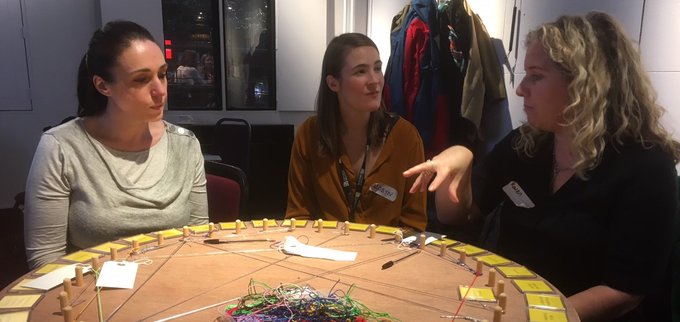Patient and public involvement
Patient and public involvement (PPI) plays an increasingly important role in our work. People with lived experience of health conditions, as well as members of the wider public, provide valuable insight and feedback throughout research projects.
PPI contributors work with researchers to advise and provide feedback on research. They are involved with research in a range of ways. Examples include:
- Giving feedback on grant proposals
- Guiding plans for involving the public
- Advising on wording in recruitment of participants to research proposals
- Highlighting gaps, for example in populations studied or potential risk factors
- Helping write lay summaries.
PPI is not the same as participating in a research study. You will not be involved in a trial or asked to contribute your own data to be researched.
Involving the public in research is often a requirement of funders. However, the benefits are much greater than satisfying grant requirements.
PPI is important because it:
- Ensures that patients’ voices are heard and can influence research and policy
- Gives unique and personal perspectives on research area
- Improves the quality of research
- Help in addressing inequalities in health research
- Ensures research is conducted appropriately
- Improves accountability of research
- Increases trust between researchers and public
- Helps ensure research is relevant to those from diverse backgrounds
- Helps researchers' own skill development.
Being involved in research as a member of the public also has benefits. Involving members of the public:
- Enables members of the public to use their own health experiences in positive way
- Provides an opportunity to learn about something new and different
- Gives an opportunity to have positive impact on health research
- Ensures research is meaningful and relevant to patients' and carers' needs
- Enables the general public to see the importance of investing in their own health
- Supports development of skills and confidence
Public contributors meet with researchers and provide feedback on research and proposed research. This might be a regular meeting on established programmes and projects (this might be anything from once a month to once or twice a year) or a one-off discussion to provide feedback on a grant idea. Meetings may be online or face-to-face and there is often communication between meetings via email to share documents for comment.
Public participants receive payment for their time.
There are a range of resources available online for researchers to guide effective PPI. University of Bristol researchers can access our directory of resources on our SharePoint.
Health research often covers topics that are difficult and potentially upsetting to members of the public, especially those with lived experiences of the subject of the research. PPI in research projects does not usually require ethics approval. However, we have developed a checklist to ensure that potentially difficult issues are anticipated and handled sensitively and appropriately. This checklist also prompts researchers to consider accessibility of PPI work and compliance with rules and best practice around data protection and working with young people and vulnerable adults.
- Read and download the checklist: Questions to consider in developing Public and Patient Involvement and Engagement (PPIE)
We also work with PPI contributors to develop Terms of Reference and/or Codes of Practice at the start of projects to set expectations for both contributors and researchers. Personal data is handled according to GDPR and the University of Bristol's privacy policies.

